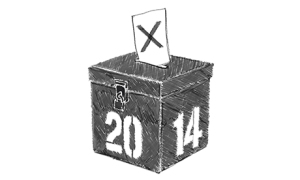Barnet is blessed. Yes – you heard that right – blessed with citizens ready to read council documents – all written at dismaying length, couched in soul-sapping jargon, and set out in intimidating formats. Small wonder the councillors themselves rarely read them. (Is there some prepense element here? Far be it from me.)
But our Barnet bloggers, tireless archaeologists (watch out for the extended metaphor here) excavate them, and carefully brush off shards of colourless clay to reveal much about the culture that buried them there.
This once, an innocuous relic brought out of the depths was passed onto me. Labelled “Barnet Council responses to all customer feedback received via the GovMetric surveys on the website January 2014” this is an Excel spreadsheet covering 130 rows (each represents a query to the website) and features columns including the original query, the response, and a customer rating for the response (ranging from ‘poor’ to ‘good’ – I did see a few of those. Impressed!)
The one to which my attention was drawn was row 17 and dealt with my favourite subject (no fool that blogger): rubbish! You may know that talking rubbish is a speciality of mine.
“No information on how to recycle shredded paper. So I have put it in a plastic bag in my blue bin. A note on this site would be helpful”, noted the conscientious resident. Hats off to her(?) for making the effort.
This blog has been trying, in its own small way, to shift our paradigm of rubbish – from discarded detritus, tainted, and triggering the disgust mechanism found in all of us humans, to a recognition that rubbish is no less than a resource in the wrong place worthy of the same attention we pay to objects we want. Really! Why? Not because it’s worth money (though in the right hands it is), but in the same way that we care for our friendships though there is no pecuniary advantage to them – because it has inherent value.
So, here is a resident saying Yes, my shredded paper may be worthless to me, a burden I need to get rid of, but I recognise that for it to realise its value, it needs to be disposed of in the right way. What is that way please?*
The answer she receives is wrong on every level!
Firstly she should be reminded in capital letter DON’T PUT PLASTIC BAGS IN THE RECYCLING.
The reason plastic “film” (bags, wrapping etc) shouldn’t go into the recycling is the same reason that shredded paper shouldn’t go in: it can’t be processed by the separation mechanisms (about which you can read more here) and instead gets blown about, gumming up the machinery, and creating a fire hazard.
Sadly the response read: “The service is working to provide a comprehensive A-Z list of what can be recycled which will include information on what to do with shredded paper. Shredded paper can be placed loose in your blue bin.”
What does this tell us? Firstly that the “service” is still not sorted out – working out a comprehensive list should have been done long since (it was brought in in October and planned long before that) and a draft should surely have already gone up and included shredded paper. Because, as Fareham council recognises here: “Shredded paper has been a feature of office waste for many years and is now more common in households as people become concerned about identity theft.”
Clearly the question never went to the staff who run the recycling plant, who kindly showed us Green Party members around the plant, and who told us about shredded paper. Instead who was consulted? Anyone? This answer is wrong, wrong, wrong – which is what you get when you do a half-arsed job aimed at finishing quickly, ticking boxes, and meeting KPIs. (Where’s the KPI that measures how accurate these answers are? It would cost more to police the KPI than to do the job of providing answers. Where’s the commercial logic in that?)
The resident supposedly graded the answer ‘good’. How was she to know? (Less ‘Impressed!’)
*Fareham Council tells you what you should do with all that shredded paper lower down the webpage (please allow for the fact that it is Fareham, not Barnet – so local differences will apply).


